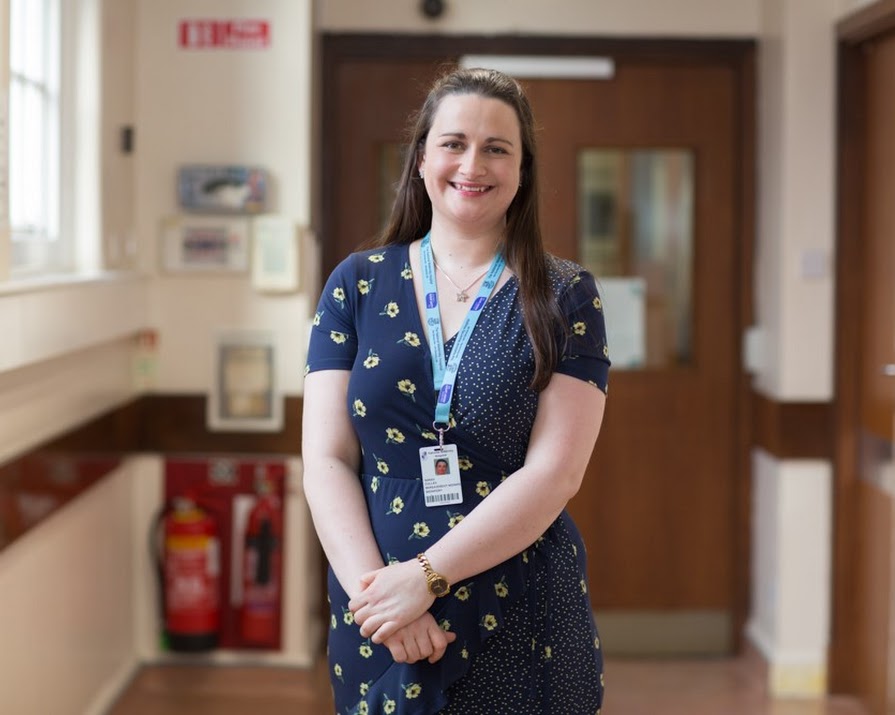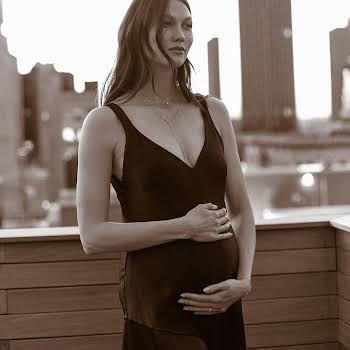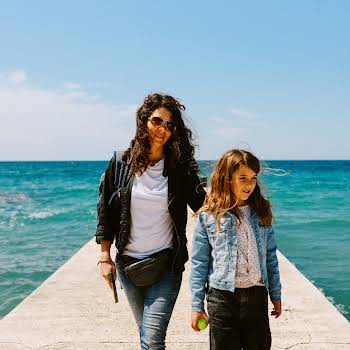
By IMAGE
08th Sep 2020
08th Sep 2020
Clinical Midwife Specialist in Bereavement, Sarah Cullen, outlines her role at The National Maternity Hospital and the impact COVID-19 has had on her work. In conversation with Seoirse Mulgrew.
Working as a bereavement midwife is very rewarding. My role is to support families during the devastating loss of their baby. Since the start of the COVID-19 pandemic, I have needed to adapt how I work quite significantly. Supporting families following the death of a baby during pregnancy or after birth during COVID-19 involves providing the same individualised compassionate care, while also adhering to social distancing, visiting restrictions and other COVID-19 guidelines.
I strive to provide parents with compassionate care tailored to their individual needs and do my best to help make their experience a little easier. While it is very emotional work, it is a privilege to support parents during the devastating loss of their baby at any stage during pregnancy or after birth. Since COVID-19, I feel a much deeper connection with bereaved parents, which has made the role of a bereavement midwife even more rewarding to me.
Every family is so different. Often their first question is ‘why did this happen?’ It isn’t always possible to answer this question but I will explain all the possible investigations that can be done and arrange an appointment for them to come back for the results. Couples who have other children are often very concerned when it comes to telling them about the baby who has died.
We offer parents books that can help to explain what has happened to their other children and sibling teddies. Books are provided to the hospital by generous donations to the NMH Foundation and the teddies are provided by Feileacain [Stillbirth and Neonatal Death Association of Ireland].
I build a strong connection with a lot of families. I sometimes meet the families again during their next pregnancy and provide support to them. It’s lovely to support parents through a pregnancy after loss and meet their new baby after the birth.
There is no doubt that COVID-19 and social distance guidelines have created new challenges for us. I am now realising the importance of physical closeness when providing supportive care, and I’m trying to find alternative ways to provide this care from a safe distance.
There are a number of non-verbal communication skills that have been helpful when supporting bereaved families. These include increased eye contact, active listening and body language. For example an open posture (arms unfolded etc.) and leaning towards the person I am talking to has helped me to convey empathy and support, which I would previously have been able to give through hand-holding, hugs and physical support.
Education for staff in relation to bereavement care is a vital part of my role. We work closely with our colleagues in UCD to provide education for student midwives surrounding bereavement care. We developed a bereavement workshop, which has been shown to improve students’ confidence and competence.
It has a particular focus on communication and providing high-quality, compassionate care to parents. Due to COVID-19, we have started to develop virtual training resources for staff. We have filmed videos for staff and have organised virtual education sessions for staff who work with bereaved parents.
We provide support to couples and families following pregnancy loss at any stage in pregnancy, the death of a baby during pregnancy or after birth.
All parents are offered support from the Clinical Midwife Specialist in Bereavement and the Chaplains. Support is provided by the NMH team, while the family is in the hospital to help them spend time with their baby, make memories, and to make funeral arrangements when the time comes.
We strive to assist families to take some positive memories away from one of the most traumatic and difficult times of their lives. Feileacain offer beautiful memory boxes to all maternity hospitals in Ireland. These memory boxes provide an excellent starting point for memory making and are treasured by parents for years after the birth of their baby. Items in the memory boxes include a blanket, two small teddies, a candle, a kit for taking hand/foot prints, a box for a lock of hair and a folder to contain all the baby’s details such as height, weight, and time of birth.
While COVID-19 restrictions have impacted on many services, one that is of great significance to my work is that of professional photography services, who are currently unable to attend the hospital. As a bereavement midwife, I am very conscious of the importance of memory making and good quality photographs following the death of a baby.
This led me to develop my photography skills and I quickly learned basic skills to take, edit and print photos. This was made possible by the support of a number of charities who provided training and resources to enable this service to develop. This has become an area of my role that I really enjoy. I feel that this extension of the bereavement midwife role has strengthened my connection with parents and allowed me to provide more holistic care.
There are numerous support groups for families following the loss of a baby. We also run a monthly support group for couples following early pregnancy loss. The National Maternity Hospital’s Early Pregnancy Support Group affords women and their partners a safe and confidential space to have their grief and loss validated and feelings normalised. Unfortunately the support group is on hold due to Covid-19 but we hope to be able to restart this vital service soon.
I also offer to help parents to bath and dress their baby. Parents have described bathing their baby as a cathartic experience. A number of parents have stated that bathing their baby gave them the chance to see, admire, and love every part of their baby’s body which they may not have done if they had not had the chance to bath their baby.
I attend supervision on a monthly basis. This provides me with a confidential space to process my own emotions and build strategies for self-care. I work with a wonderful team of people, in particular my fellow bereavement midwives [Brenda and Debbie], and the chaplains [Helen and Angela] who are always available for support, advice or simply a cup of tea after a busy day!
It is so gratifying when parents tell me that something I did has helped them through their grief. I love getting ‘thank you’ cards particularly when parents explain how we helped them. I also enjoy teaching staff and students and find that very fulfilling too.
Photo: Jeanette Lowe
For more information regarding bereavement support visit nmh.ie or pregnancyandinfantloss.ie, or https://feileacain.ie/
To help support Bereavement at the NMH, please visit www.nmhfoundation.ie
Read more: “Multiple miscarriages or pregnancy loss is a lonely place”
Read more: Recurrent miscarriage: what’s normal, what causes it and what to do
Read more: Laura Whitmore shares her experience of pregnancy loss























